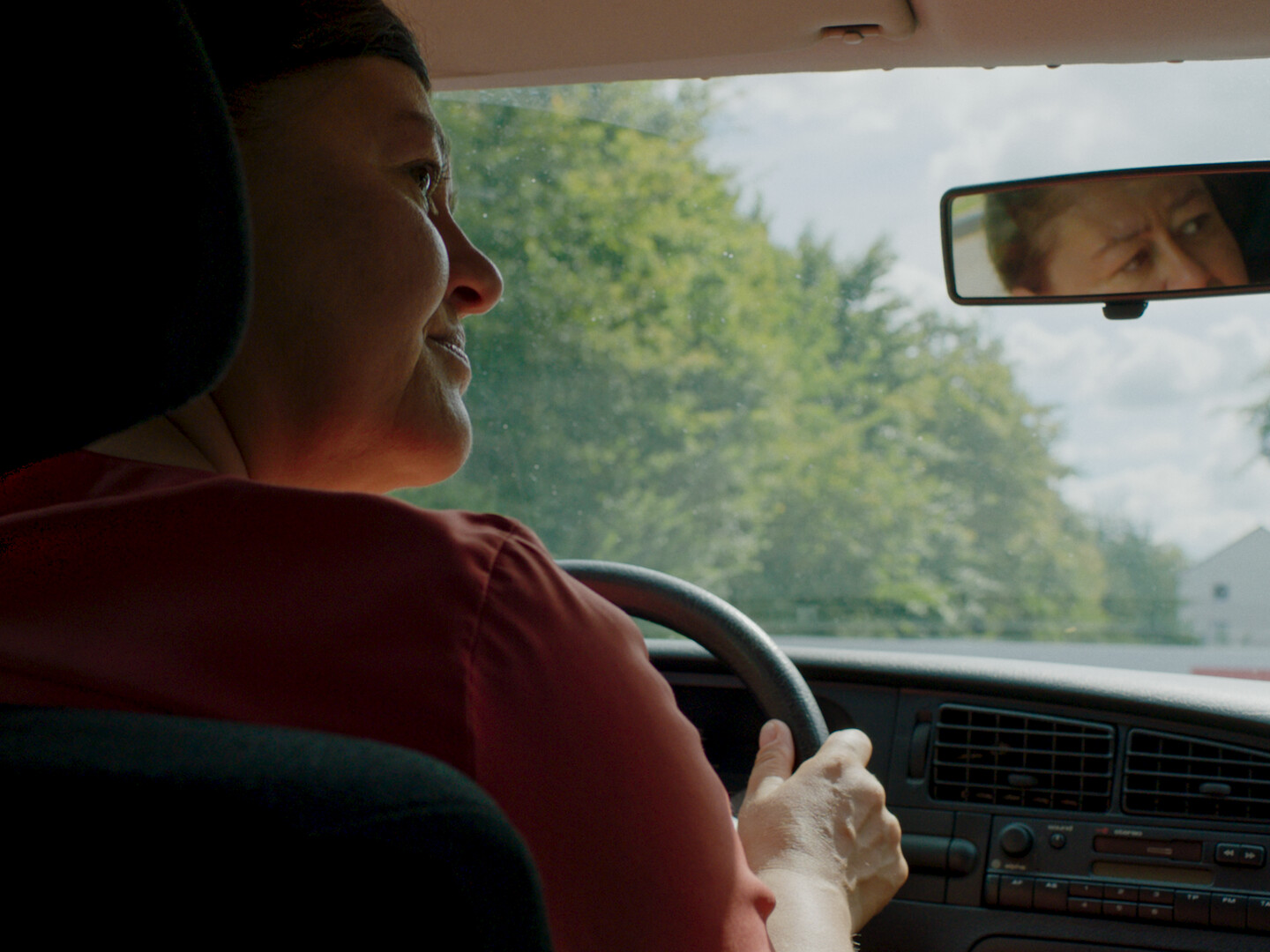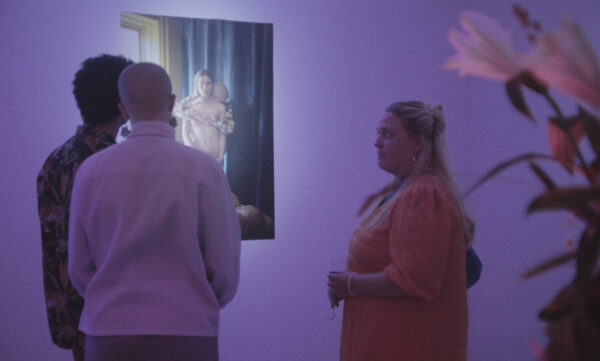A Day Off
Long Time No See
Kevin Biele’s short is full of subtlety: a quiet “no” has never sound so powerful.

What does it mean to belong? Silvia has missed out on a lot for the last year. She’s been absent from work and now returns to the office in her small red Volkswagen, somewhere in Germany. The first shots give us access to her eyes through the rear-view mirror. Hard to tell whether she’s looking forward to her return to work. The opening of Kevin Biele’s Long Time No See (Lange nicht gesehen) is deceptively quiet.
But frustrations soon appear. Silvia tilts her head at the company gate, displaying a friendly smile aimed at the security guard. That doesn’t get her anywhere. Slightly annoyed, she gets out of her car and talks to him, only his memory of her is vague. A lot seems to have changed while she was away: there are now security badges, a new team leader, and advanced English skills seem to be mandatory.
Silvia attempts to resume her work. But she can’t even log in to her computer: the system has forgotten all about her. Access to her computer desktop will form her odyssey for the rest of the film. She seeks help from IT services located in India, to no avail. Her team leader Selma proves equally indifferent, and the HR colleague is as frosty and unhelpful as the rest of them. Silvia strives to remain useful nonetheless; she brings everyone coffee.
Days seem to pass in this purgatory, a fact we can only make out from the changing colour of her blouses. She stares at colleagues from behind her useless desk. Then she discovers a sticky note hidden behind her keyboard. “Where does that come from?,” her eyes seem to say. The answer doesn’t really matter. What does is what follows: a quiet revolution in a dull open-plan workspace. Silvia has finally found the login password. But when a colleague asks her whether it works, she hesitates an instant, then lies. “It doesn’t,” she replies, before casually leaving the office and taking to the wheel of her red Volkswagen again, probably never to return.
Biele’s short is full of subtlety, at the level of narrative and form. The anonymity of the office space, the deep disinterest towards anything remotely human in this company’s organisation, are hauntingly accurate. This touches a nerve in our post-pandemic world, where increased attention is devoted to what constitutes purposeful work.
Within the office, alienation is Silvia’s everyday. But it is also that of secondary characters, like her new team-leader Selma. In what at first looks like an absurdist twist, Silvia one day finds Selma collapsed on the office floor. Helped back up, Selma readily admits this has happened before: she is overworked, the consequence of her seeming hyper-efficiency, displayed only minutes before during a meeting, catching up with her body.
Marx could tell you all about the alienation of workers, and expound it into a critique of the globalised value creation chain in the same breath. Yet in this instance, as in others, Biele’s film silently seems to gesture towards another history, that of two countries merged into one: when socialist East Germany was absorbed into its richer and freer Western counterpart, whole biographies were made redundant. Through the bleak landscape of Long Time No See, with the chimneys of chemical factories hovering over lunch-breaks, one can imagine how this history might have left a lot of unfinished business and deep-seated resentment. One can also imagine this being fertile terrain for a far-right party, like the AfD, to sow the seeds of rageful grievances. Silvia, however, opts for a quieter yet far more powerful rebellion.
Amid a near exclusively female cast, this cautious tale of silent protest owes much to Ruzica Hajdari’s spellbinding performance. Middle-aged Silvia is played with wonderful degrees of humanity: from her slow gait, self-effacing gestures to that Mona-Lisa-smile that draws you into the recesses of her mind. The way she cups her hands seems weighted by a lifetime of disillusions. The camera follows this humble human animal closely, remaining with her even when her co-workers fail to notice her existence.
Silvia courageously rejects an insensitive world, taking to the road without drawing any attention. But we saw it. And her quiet “no” leaves one full of admiration for the ordinary and overlooked acts of dissent that up a bold life.





There are no comments yet, be the first!